Kenya
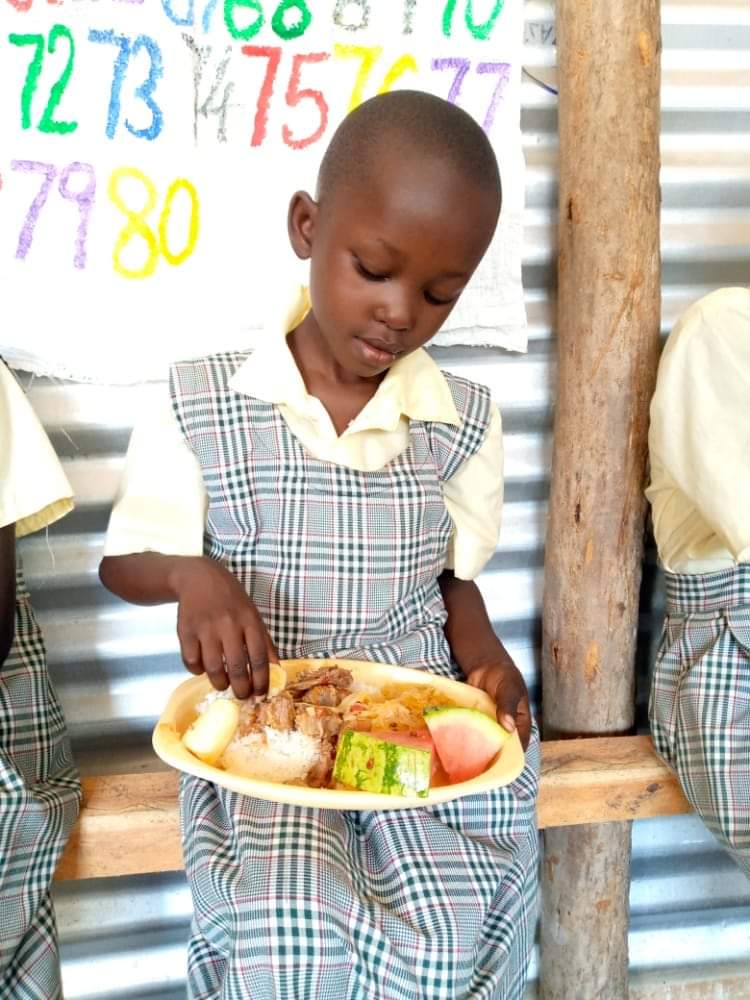
A Feast of Hope
This year, hunger flares with food shortages and rising prices. The Russia-Ukraine war has now destroyed crops across Europe’s breadbasket, cutting off grain exports and leaving many Africans without enough to eat.
At Chebilat Primary School in Kenya, a discussion of the challenges and the importance of peace prompted one student to suggest putting compassion on the plate—in the form of a project to grow and distribute student lunches to more remote schools in the region.
The Chebilat team of students worked together to grow vegetables in raised beds made with repurposed burlap sacks. They soon provided healthy, balanced meals for the young children at Nyamanga Nursery School, who thankfully received the gift of compassion (pictured below).
The project will continue in 2023, with the Chebilat students scheduled to feed six new schools in two other counties in January alone. Full-Circle Learning-funded Kenya programs continue to grow based on popular demand, opening the door to more wisdom exchanges among the world’s children.
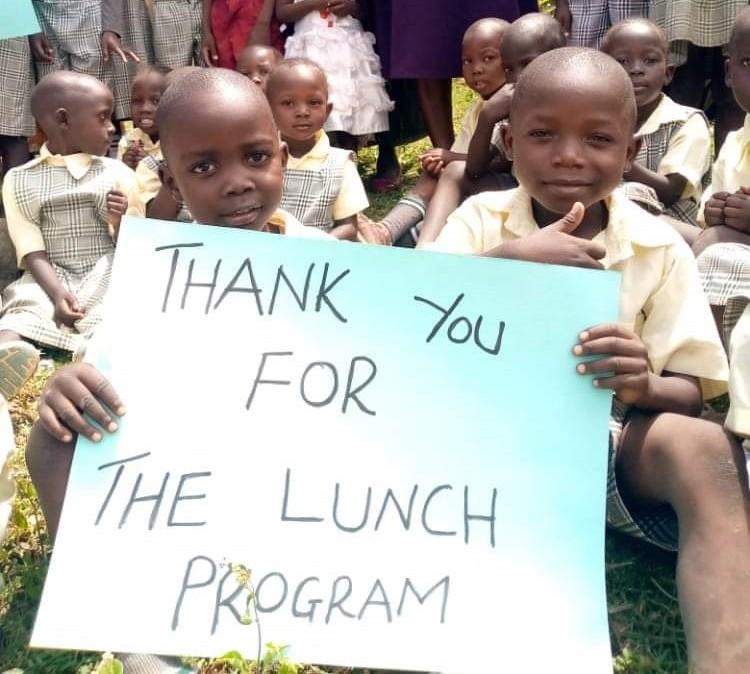
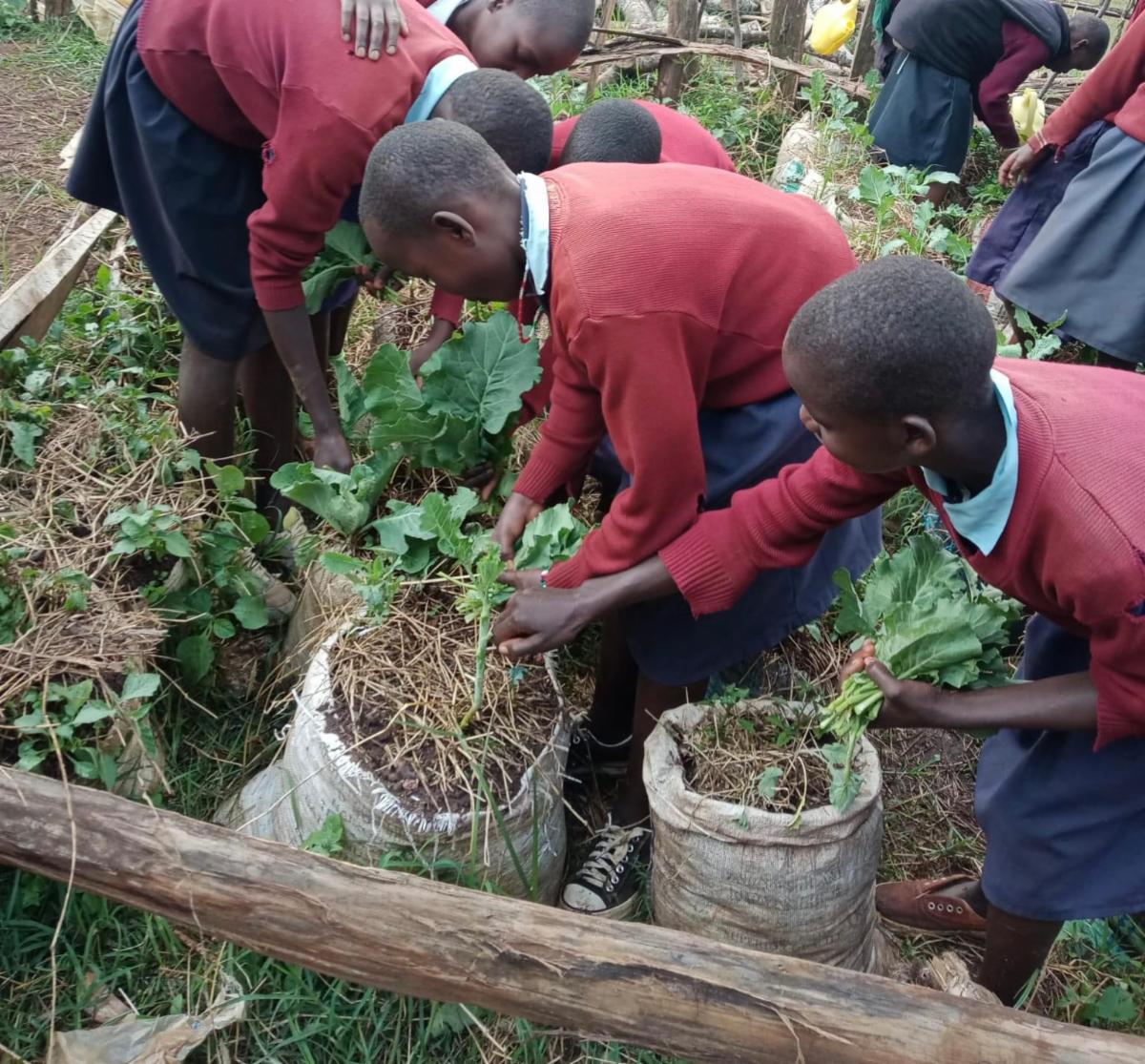
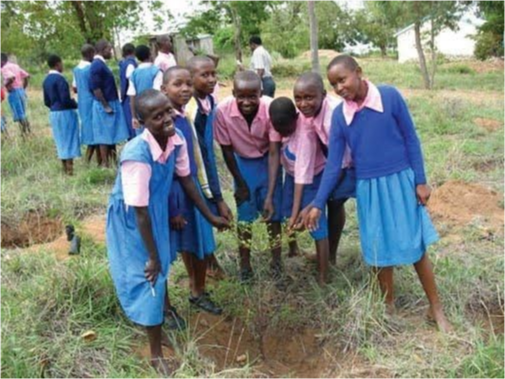
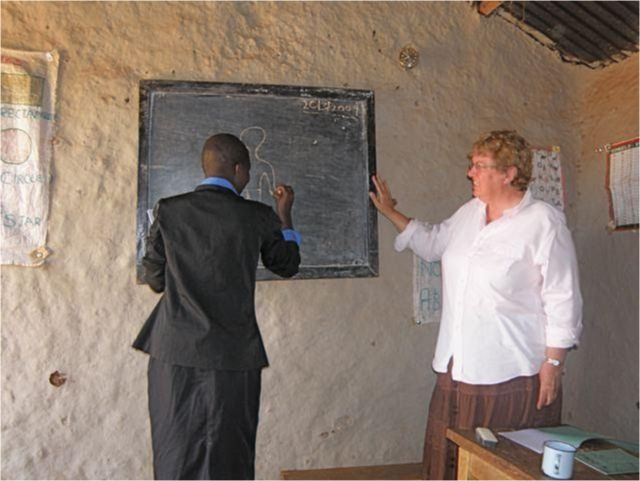
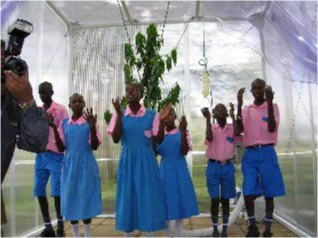
Kenya became the first Full-Circle Learning global wisdom exchange partner for American children in the 1990s. While practicing the habit of compassion, the South Los Angeles students wrote to ask young Marlou, a Plan International “foster child,” how he could run so far and fast for the family’s daily drinking water. Marlou took the letters to his teachers at the Kivva School. Soon the two schools began sharing exciting projects together Their first communication led to a scientific experiment between the two distant schools, to see whether solar cookers could speed the pasteurization process for drinking water. (TheAmerican children made solar cookers from cracker boxes, and the Kenyan students conducted experiments and documented the best conditions for effective pasteurization.
Later wisdom exchanges compared agricultural techniques, nutrition, girls’ education opportunities, and ways to promote harmony within the home and community.
A peak experience occurred when the Kivva students were invited to take on theBeauty Is What You Do challenge, evaluating what they found most precious in their environment and committing to protect it. A resulting piece of art from each country would be displayed in San Francisco’s Zeum museum. The Kivva School shared its results with the planners in a letter, writing:
Thank you for sending us this challenge based on the song,Beauty is What You Do. We first took action to beautify our community with acts of kindness. Next, we cleared the local watering hole of donkey manure for all who fetch water there. We then terraced the hillside, so the plants would thrive and receive more rain. We held a training for parents, to teach them drought-resistant farming. We made pictures of lions from sand and straw, and we sent them to the museum.
By then it was time to take our song on the road, for we had been invited to go by bus on a five-hour drive to Nairobi to sing at the ceremony for the outgoing director of the UN Environment Programme. There, we sang inside an art installation that included a tree“on life support.” We were honored to sing for Nobel prizewinner Wangari Mathai, who came to meet us afterward. It was the most memorable day of our lives! At last our project was complete. We would have done more,but we had only two weeks!
Other projects in Kenya included food aid during the 2020 pandemic for schools on lockdown. A few years earlier, in 2008, Sherna Deamer also trained the staff of the Deamer Academy in El Dorat, a school designed “to bring up children who will benefit society in the future as part of a community building process.”